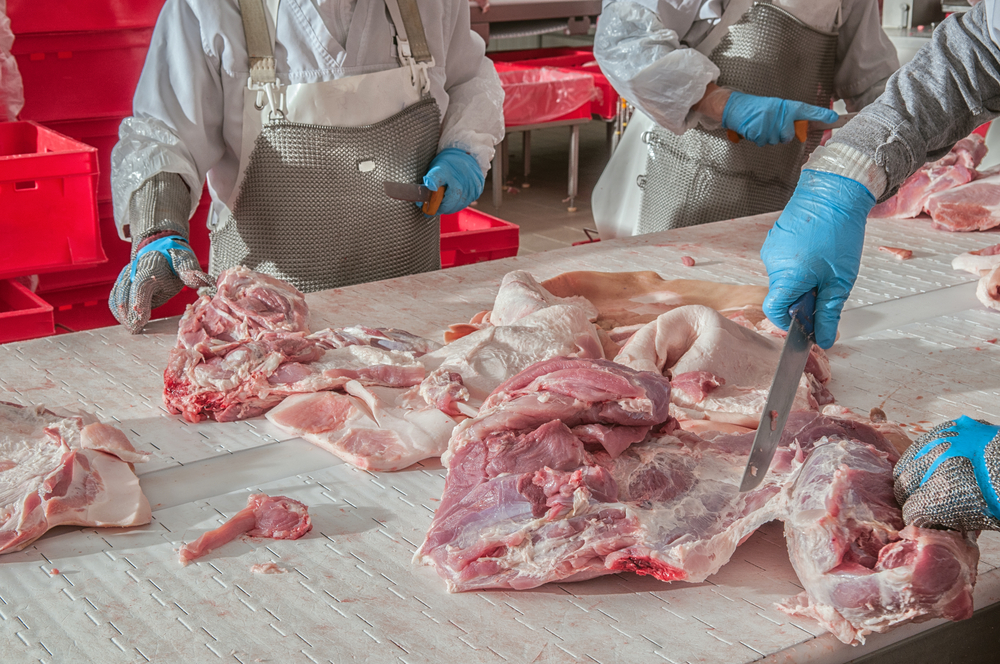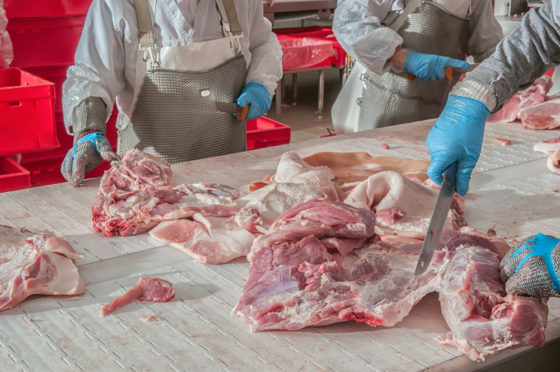EU meat promotion review will hit Dutch industry


The Dutch meat sector is likely to be affected by the review of an EU scheme to promote EU farming products, now that using public money to encourage meat consumption is increasingly in the spotlight.
The EU agricultural promotion policy was designed to promote EU food within and outside the European Union in the wake of the foot-and-mouth disease crisis, some 20 years ago. It funds campaigns run by trade associations or directly by the EU, for instance via diplomatic missions or at trade fairs.
As part of these campaigns, the EU has spent some €143 million to promote meat in the past five years, according to a recent analysis by news site EUobserver while €271 million, one third of the funds for the period 2017-2021, was spent on the promotion of ‘baskets’ of products, almost all of which included meat.
Last year Greenpeace estimated that 32% of the €776.7 million five-year promotion budget was spent on advertising campaigns for meat and dairy products.
Among the initiatives funded by the programme, there is ‘Proud of European Beef’, run by Spanish organisation Provacuno and Belgian group APAQ-W to highlight the ‘benefits of the product’ and encourage consumption.
The Dutch Meat Association (COV) has been a beneficiary of these funds too, running among others the ‘Trusted Veal from Europe’ campaign outside the EU.
A total of €185.9 million has been allocated to the scheme in 2022.
The strategy, the Commission says, aims to ensure that EU food production has ‘a neutral or positive environmental impact’, helps mitigate climate change and reverse biodiversity loss, while guaranteeing adequate stocks, nutrition levels and affordability.
Environmental goals
But there are growing questions about the use of EU funds to promote meat which conflicts with with scientists’ recommendations to reduce consumption in order to limit global warming, and to meet the EU’s own environment targets, Greenpeace said.
Data from the UN Food and Agriculture Organisation (FAO) show that greenhouse gas emissions from animal farming account for 17% of the EU’s total, the equivalent of 704 million tonnes of CO2 and ‘more than all cars and vans put together’.
Greenpeace calculated that to meet the EU objective of carbon neutrality by 2050, meat consumption would have to be reduced to 24 kg per person per year, against the current EU average of 82 kg, or 75.8 kg in the Netherlands.
First global exporters
The European Union is a major meat producer and ranks first in the world for exports of pork, third for poultry and eighth for beef, all of which have increased in the past years.
The Netherlands was the biggest EU meat exporter in 2020, ranking first for export of beef and veal, second for poultry and fourth for pork, according to national statistics association CBS. About 60% of Dutch revenues from meat sales are from exports, and Germany, Britain and China are the main destinations, the CBS said.
A revision of the promotion policy
The Commission is now preparing to revise the EU agriculture promotion policy, debating whether products such as meat and wine should still be supported.
Dutch poultry industry association said without this support, the EU meat industry could be ‘overtaken’ by that from other parts of the world ‘which are commonly less sustainable’.
Frans van Dongen, who represents the Dutch meat association COV in Brussels, told Dutch News that funds should be used primarily for the promotion of sustainable EU food outside the EU.
Waste
This would ensure the use of ‘cuts that are not desired by European consumers which be otherwise wasted… create a demand for sustainable products in these markets’and ‘help finance the green transition for EU farmers,’ he argued.
Van Dongen also said that the Dutch meat sector is investing in sustainable practices and some pig meat products ‘already have a lower environmental footprint than tofu’.
Eleven EU countries are against the exclusion of the meat sector from promotional activities, the EUObserver reported but their number does not include the Netherlands.
Earlier in May, as part of an evaluation of the government’s food policy, Dutch ministers agreed to investigate whether or not a tax on meat would help reduce consumption.
Thank you for donating to DutchNews.nl.
We could not provide the Dutch News service, and keep it free of charge, without the generous support of our readers. Your donations allow us to report on issues you tell us matter, and provide you with a summary of the most important Dutch news each day.
Make a donation